charity care application form nj
The charity care application form NJ provides uninsured or underinsured residents access to affordable medical services through a state-funded program. Completing the form accurately is essential for approval.
1.1 Overview of the Charity Care Program in New Jersey
The Charity Care Program in New Jersey is a state-funded initiative designed to provide financial assistance to uninsured or underinsured residents. It covers medically necessary services at participating hospitals, helping individuals access affordable healthcare. Eligibility is based on income, residency, and insurance status. The program aims to reduce the burden of medical expenses for low-income families and individuals, ensuring they receive essential care without financial hardship. Applications are typically submitted through a specific form, with required documentation to verify eligibility. This program is a vital resource for those unable to afford healthcare costs in New Jersey.
1.2 Importance of the Application Form for Patients
The Charity Care Application Form NJ is crucial for patients seeking financial assistance for medical care. It serves as the primary document to determine eligibility for the program, ensuring access to affordable healthcare services. By completing the form accurately, patients can demonstrate their financial need and receive the necessary support to cover medical expenses. The application form acts as a gateway to relief from high medical bills, enabling individuals to focus on recovery rather than financial burdens. Its submission is essential for unlocking the benefits of the Charity Care Program in New Jersey.
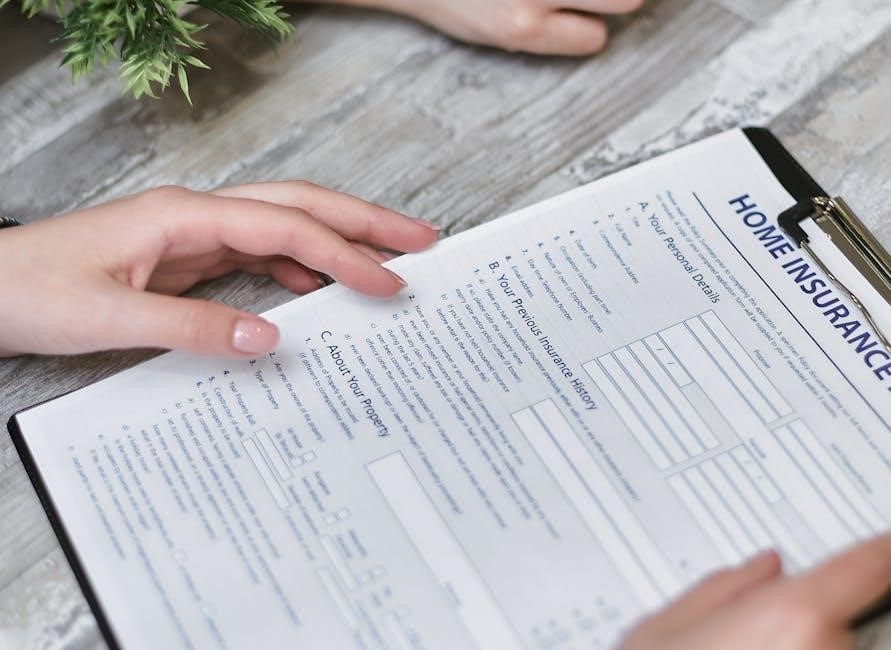
Eligibility Requirements for Charity Care in NJ
Eligibility for Charity Care in NJ is based on factors like income, residency, and insurance status. Patients must be uninsured, underinsured, or ineligible for state or federal programs.
2.1 Income Criteria for Charity Care Eligibility
The income criteria for Charity Care eligibility in New Jersey are based on household income relative to the Federal Poverty Level (FPL). Applicants must provide proof of income, such as pay stubs or tax returns, to determine eligibility. The program typically considers income from the past three months. Income limits are set at a percentage of the FPL, and applicants must fall below this threshold to qualify. Accurate documentation is crucial, as any discrepancies may delay or deny the application. Failure to provide required financial information can result in ineligibility for the program.
2.2 Residency Requirements in New Jersey
Applicants for Charity Care in New Jersey must meet specific residency requirements to qualify for assistance. Proof of residency, such as utility bills or a lease agreement, is mandatory. The applicant must demonstrate they have lived in New Jersey for at least three consecutive months. This requirement ensures the program serves state residents exclusively. Non-residents are not eligible, even if they receive medical care in New Jersey. Providing accurate and current proof of residency is critical, as incomplete or incorrect documentation may lead to application denial. Residency verification is a key step in the eligibility process.
2.3 Insurance Status and Eligibility
Applicants for Charity Care in New Jersey must provide documentation of their insurance status. The program primarily assists uninsured or underinsured individuals. Those with private insurance or Medicaid may still qualify if their coverage is insufficient for necessary care. Hospitals are required to screen applicants for potential eligibility in other insurance programs before approving Charity Care. Proof of insurance status, such as a denial letter from Medicaid or private insurers, must be submitted. This step ensures that applicants explore all possible coverage options before relying on the Charity Care program. Accurate documentation of insurance status is essential for eligibility determination.
Application Process for Charity Care in NJ
The Charity Care application process involves obtaining the form, submitting it with required documents, and adhering to the specified timeline for review and approval.
3.1 How to Obtain the Charity Care Application Form
The Charity Care application form can be accessed online through the official New Jersey Department of Health website. It is available between February 3, 2025, and March 3, 2025. Applicants can also obtain the form by contacting the Charity Care Program directly via email at Charity.Care-Fraud@doh.nj.gov or by mail at P.O. Box 360, Trenton, NJ 08625. Additionally, participating hospitals in New Jersey provide the form to patients upon request. Ensure to review the form carefully and gather all required documents before submission.
3.2 Submission Methods for the Application
The Charity Care application can be submitted online through the official New Jersey Department of Health website or via mail to P.O. Box 360, Trenton, NJ 08625; Additionally, completed applications can be emailed to Charity.Care-Fraud@doh.nj.gov. Applicants may also submit their forms directly to participating hospitals, which assist with the screening process. Ensure all required documents are attached, and the form is signed to avoid delays. Failure to return the signed form may result in application denial. Track submission status by contacting the hospital or program support team.
3.3 Required Documentation for Application
To complete the Charity Care application, applicants must provide proof of residency, income, and identity. Residency can be verified with utility bills or lease agreements. Income documentation includes recent pay stubs, tax returns, or a letter from an employer. Proof of identity, such as a driver’s license or passport, is also mandatory. Additionally, applicants may need to submit asset information, including bank statements. All documents must be current and valid to ensure proper processing. Failure to provide required documentation may delay or result in denial of the application.
3.4 Timeline for Application Submission
The Charity Care application form NJ is typically available between February 3, 2025, and March 3, 2025. Applicants should submit their completed forms during this period to ensure timely processing. Once submitted, the review process may take 30 to 45 days, depending on the hospital’s workload. Approvals are usually retroactive to the date of service. It is advisable to submit applications as early as possible within the designated window to avoid delays. Applicants should also follow up with the hospital if they have not received a decision within the expected timeframe.
Required Documents and Information
The Charity Care application form NJ requires proof of residency, income, assets, and identity. All documents must be current, and the form must be signed.
4.1 Proof of Residency in New Jersey
Applicants must provide proof of residency in New Jersey, such as a utility bill, lease agreement, or state ID. Documents must show a New Jersey address and be dated within the past 90 days. This requirement ensures eligibility for state-funded programs like Charity Care. Residency verification is critical for determining program eligibility, as benefits are reserved for New Jersey residents. Failure to provide valid proof may delay or deny application processing. Ensure all documents are clear, legible, and meet the specified criteria to avoid issues during the review process.
4.2 Proof of Income for Eligibility
Proof of income is essential to determine eligibility for Charity Care. Applicants must submit recent pay stubs, tax returns, or letters from employers verifying earnings. Self-employed individuals may need to provide additional documentation, such as financial statements or invoices. Income from all household members is considered, and documentation must reflect earnings from the past 30 days or the most recent tax year. This information helps assess financial need and ensures accurate evaluation of eligibility for the program. Providing clear and complete income documentation is crucial for a smooth application process.
4.3 Proof of Assets for Financial Screening
Proof of assets is required to assess financial eligibility for Charity Care. Applicants must provide documentation of bank statements, investment accounts, property deeds, and retirement accounts. This helps determine if liquid assets could cover medical expenses. Clear and complete documentation is essential, as incomplete information may delay the application. Assets are evaluated alongside income to ensure eligibility alignment with program guidelines. This step ensures that financial assistance is directed to those with the greatest need, promoting equitable access to healthcare services.
4.4 Proof of Identity for Application
Proof of identity is a critical requirement for the Charity Care application process. Applicants must provide valid government-issued identification, such as a driver’s license, state ID, passport, or Social Security card. This step ensures eligibility verification and prevents fraud. Clear photocopies or original documents may be requested, depending on the submission method. Failure to provide valid identification can delay or reject the application. This requirement helps maintain program integrity and ensures assistance is directed to eligible New Jersey residents. Submitting accurate and valid ID documents is essential for a smooth application process.
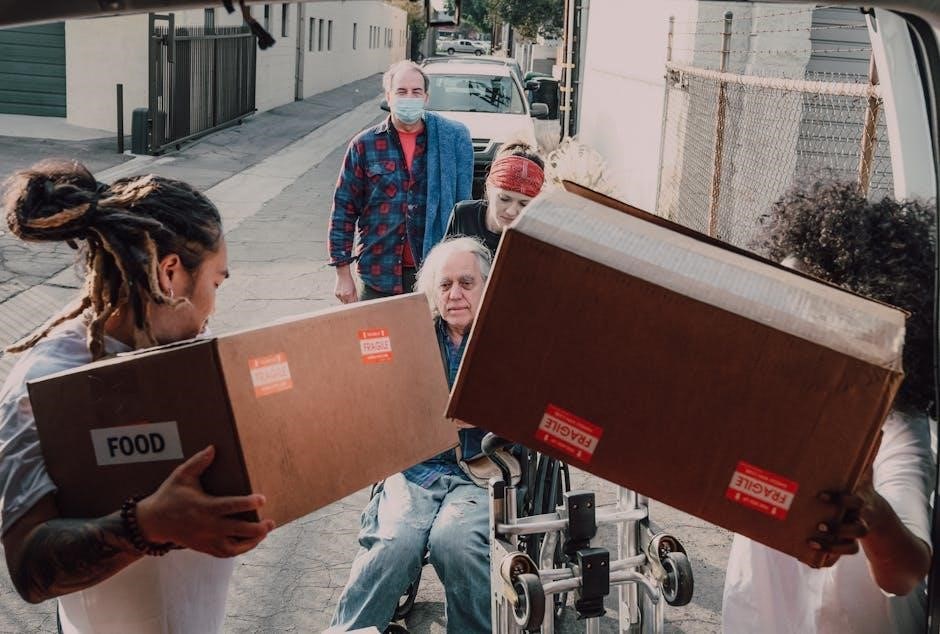
Understanding the Financial Screening Form
The financial screening form evaluates applicants’ income and assets to determine eligibility for Charity Care. It ensures fair assessment of financial status and required documentation for approval.
5.1 What is Included in the Financial Screening Form
The financial screening form requires detailed information about income, assets, and residency. Applicants must provide proof of income, such as pay stubs or tax returns, and disclose all assets, including bank accounts and property. The form also includes sections for household size, employment status, and any additional financial obligations. A declaration of accuracy and a signature are mandatory. This comprehensive review ensures eligibility determination aligns with program guidelines, providing fair access to Charity Care benefits for those in need.
5.2 Financial Criteria for Charity Care Approval
The financial criteria for Charity Care approval primarily focus on income limits, which vary based on household size and federal poverty guidelines. Applicants must demonstrate that their income falls below a specified threshold, typically 200% of the Federal Poverty Level. Additionally, liquid assets, such as savings or investments, are assessed to ensure they do not exceed program limits.
Proof of residency and insurance status are also critical. Applicants must verify that they are uninsured or underinsured and lack access to other financial resources. The program aims to provide assistance to those who genuinely cannot afford medical care, ensuring equitable access to essential services.
Hospital Participation in Charity Care Program
All acute care hospitals in New Jersey are required to participate in the Charity Care Program, ensuring access to medically necessary services for eligible patients statewide.
6.1 List of Participating Hospitals in NJ
A comprehensive list of participating hospitals in New Jersey’s Charity Care Program is available to ensure accessibility. Major hospitals like Jersey Shore University Medical Center and Robert Wood Johnson University Hospital are included. Patients can contact specific facilities directly for eligibility screening and application assistance. A full list of participating hospitals, along with their contact information, can be found on the official New Jersey Department of Health website. This ensures residents can easily locate a nearby hospital to apply for Charity Care benefits and receive necessary medical services.
6.2 Role of Hospitals in Application Screening
Hospitals in New Jersey play a crucial role in the charity care application screening process. They are responsible for evaluating eligibility based on financial status, residency, and medical necessity. Each participating hospital reviews submitted applications to determine if candidates meet the program’s criteria. Hospitals also verify required documentation, such as proof of income and residency, to ensure compliance. Additionally, they screen for potential third-party insurance coverage or Medicaid eligibility before approving charity care benefits. This step ensures that assistance is directed to those most in need. Incomplete applications may result in delays or denial, emphasizing the importance of thorough submissions.
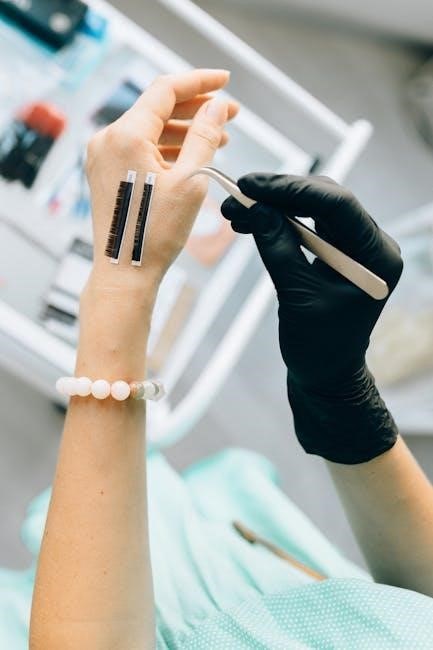
Completing the Application Form
Completing the charity care application form NJ requires careful attention to detail. Provide accurate financial information, ensure all sections are filled, and avoid errors to prevent delays in processing.
7.1 Tips for Filling Out the Application Accurately
To accurately complete the charity care application form NJ, ensure all required fields are filled. Provide clear and truthful information about income, residency, and assets. Double-check calculations and verify document attachments. Avoid omissions, as incomplete applications may delay processing. Pay attention to signature requirements, as unsigned forms may be denied. Review the form thoroughly before submission to ensure accuracy and completeness. Seeking assistance from hospital staff or support services can also help prevent errors and improve the chances of approval.
7.2 Common Mistakes to Avoid
When completing the charity care application form NJ, avoid common mistakes that could delay or deny approval. Ensure all fields are filled accurately and completely. Missing deadlines, incomplete sections, or incorrect information can lead to rejection. Failing to attach required documents, such as proof of residency or income, is another frequent error. Additionally, avoid submitting unsigned forms, as this can result in denial. Providing false or misleading information can also lead to penalties. Double-checking the application and adhering to submission timelines can help prevent these issues and improve the likelihood of approval.
7.3 Importance of Signature on the Application
The signature on the charity care application form NJ is legally required to confirm the accuracy of the information provided. Unsigned applications are ineligible for review and will be denied. The signature serves as a legal affirmation that all details are truthful and accurate. Failure to sign can delay or reject the application entirely. Applicants must ensure the form is signed before submission to avoid processing issues. Providing false information can lead to penalties, making the signature a critical step in maintaining the application’s integrity and validity.

After Submitting the Application
After submitting the charity care application form NJ, applicants can track their status online or via phone. The review process ensures eligibility verification and timely determination.
8.1 How to Track the Application Status
After submitting the charity care application form NJ, applicants can track their status through the provided online portal or by contacting the program directly via email or phone. The application status can also be monitored by logging into the account created during submission. Additionally, applicants may receive updates via email or mail. It is important to keep the reference number provided after submission handy, as it is required to check the status. Applicants are encouraged to follow up if they have not received a response within the expected timeframe to ensure their application is being processed.
8.2 Understanding the Review Process
The review process for the charity care application form NJ involves verifying the accuracy of submitted documents and assessing financial eligibility. Once the application is received, it is reviewed by the designated program staff or hospital representatives. The evaluation includes checking proof of residency, income, and assets to determine eligibility. Applicants may be contacted for additional information or clarification during this phase. The review process ensures that only qualified individuals receive assistance. The timeline for processing varies, but applicants can typically expect a decision within a few weeks. Status updates can be requested through the provided contact information.
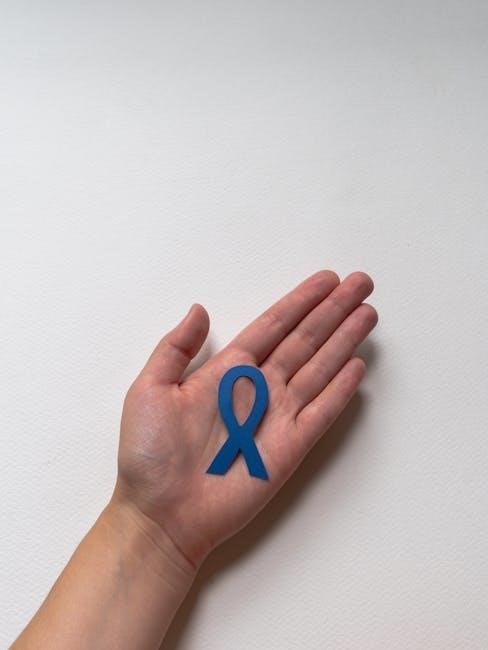
Notification and Next Steps
Applicants receive a notification regarding their application status. Approved individuals are provided with instructions for utilizing benefits. Denied applicants may appeal or seek further assistance through support channels.
9.1 Receiving Notification of Approval or Denial
Applicants are notified via mail or email regarding their application status. If approved, the notification includes details on covered services and instructions for utilizing benefits. If denied, the letter outlines reasons and may provide guidance for appealing the decision. Recipients must review the notification carefully to understand their eligibility status. Approved applicants should keep the document for their records, as it may be required for future verifications. The notification process ensures transparency and clarity for all applicants seeking financial assistance through the charity care program.
9.2 Appealing a Denied Application
If an application is denied, applicants have the right to appeal the decision. The denial letter typically outlines the reasons for rejection and provides instructions for the appeal process. Applicants must submit a written request within a specified timeframe, often 30 days, to the Charity Care Program office. Additional documentation may be required to reassess eligibility. It is crucial to follow the outlined steps carefully to ensure the appeal is reviewed. The program may reconsider the application based on new or corrected information, providing an opportunity to overturn the initial denial and gain access to needed assistance.
9.3 Next Steps After Approval
Upon approval, applicants receive a notification outlining the scope of their Charity Care coverage. The approval letter details eligible services, duration, and any applicable copays. Recipients must review and understand the terms to ensure they utilize the benefits correctly. Approved individuals should contact their healthcare provider to confirm coverage and schedule necessary treatments. Renewal applications may be required periodically to maintain eligibility. It is essential to communicate with hospital staff or program administrators for any updates or changes in care needs. Proper utilization of approved benefits ensures access to essential medical services without financial burden.
Maintaining Eligibility
Maintaining eligibility for Charity Care requires periodic renewals and providing updated documentation. Recipients must meet ongoing criteria, including residency and income requirements, to continue benefits.
10.1 Renewal Process for Charity Care
The renewal process for Charity Care typically occurs annually, requiring updated documentation. Eligibility is reassessed based on current income, residency, and family size. Recipients must submit a new application, along with proof of residency, income, and assets. Forms can be obtained from participating hospitals or online. Failure to renew on time may result in a lapse of benefits. Applicants are encouraged to submit renewals well before the deadline to ensure continuous coverage. Any changes in circumstances must be reported promptly to maintain eligibility. Renewal ensures uninterrupted access to affordable medical care for eligible individuals. Timely submission is crucial for ongoing benefits.
10.2 Changes in Circumstances Affecting Eligibility
Changes in income, employment, family size, or residency must be reported to maintain Charity Care eligibility. Increases in income or assets may reduce benefits, while decreases could enhance eligibility. Recipients must notify the program promptly if they gain health insurance or experience other financial changes. Failure to report changes may lead to eligibility reassessment or termination. Updates ensure benefits align with current circumstances, maintaining fairness and accuracy in the program. Timely reporting of changes is essential to avoid disruptions in care coverage. Recipients are responsible for keeping their information up-to-date to retain eligibility.
Additional Resources and Support
Applicants can access charity care application form NJ resources through the official website, email support at Charity.Care-Fraud@nj.gov, or contact hospitals directly for assistance with the process.
11.1 Where to Find Assistance with Application
Applicants seeking assistance with the charity care application form NJ can find help through various resources. The official New Jersey Department of Health website provides detailed guidelines and downloadable forms. Additionally, applicants can contact the program via email at Charity.Care-Fraud@nj.gov or mail inquiries to the Charity Care Program at P.O. Box 360, Trenton, NJ 08625. Hospitals participating in the program also offer support, with some facilities providing direct phone numbers, such as 732-902-7080 for Jersey Shore University Medical Center. Applicants can also call NJ FamilyCare at 1-800-701-0710 for related assistance.
11.2 Contact Information for Support
For assistance with the charity care application form NJ, applicants can contact the New Jersey Department of Health at Charity.Care-Fraud@nj.gov. Mailed inquiries can be sent to the Charity Care Program at P.O. Box 360, Trenton, NJ 08625. Additionally, applicants can reach out to participating hospitals, such as Jersey Shore University Medical Center, by calling 732-902-7080. The NJ FamilyCare hotline at 1-800-701-0710 also provides guidance for uninsured children and families. These resources ensure applicants receive the support needed to complete and submit their applications successfully.
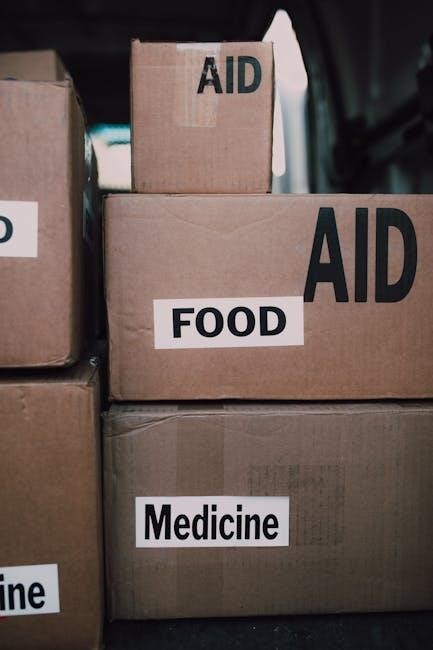
Fraud Prevention and Application Accuracy
Providing accurate information is crucial for fraud prevention. Submitting false data can lead to application denial or legal consequences. Report suspicious activity to Charity.Care-Fraud@nj.gov for investigation.
12.1 Importance of Accurate Information
Providing accurate information on the charity care application form NJ is essential to ensure eligibility and avoid fraud. Inaccurate or incomplete details can lead to delays or denial of assistance. The Department of Health rigorously verifies all submitted data to maintain program integrity. Any discrepancies may result in legal consequences, including denial of benefits. Applicants must certify that the information provided is true and correct. Honest disclosure ensures fair access to charity care for those in need, upholding the program’s mission to provide affordable healthcare to eligible residents.
12.2 Consequences of Providing False Information
Providing false information on the charity care application form NJ can lead to severe consequences, including denial of benefits and legal action. The Department of Health takes fraud seriously and may ban applicants from future participation in the program. Inaccurate statements can also result in financial liability for medical services received under false pretenses. It is crucial to ensure all details are truthful and verifiable to avoid these outcomes. honest disclosure is essential to maintaining the integrity of the charity care program and ensuring fair access to healthcare for eligible residents.
The Charity Care Program offers essential financial relief to New Jersey residents, ensuring affordable healthcare access. Understanding the application process is key to benefiting from this vital assistance.
13.1 Final Thoughts on Charity Care Application
The Charity Care application is a lifeline for New Jersey residents facing financial constraints. It ensures access to necessary medical care by reducing or eliminating costs. Applicants must carefully review eligibility criteria and submit all required documents to avoid delays. The program’s success lies in its ability to provide relief to those in need. By understanding the process and seeking assistance when needed, applicants can navigate the system effectively; Remember, accurate information and timely submission are key to a smooth experience. This program exemplifies New Jersey’s commitment to equitable healthcare access.
13.2 Encouragement to Apply for Assistance
Applying for the Charity Care program is a proactive step toward managing medical expenses. Eligible individuals can significantly reduce financial burdens, ensuring access to essential healthcare services. The program is designed to support those in need, and completing the application is a straightforward process. Don’t hesitate to seek assistance if you meet the criteria. Taking advantage of this program can provide peace of mind and financial relief during challenging times. Remember, the Charity Care application form NJ is a valuable resource for achieving affordable healthcare.